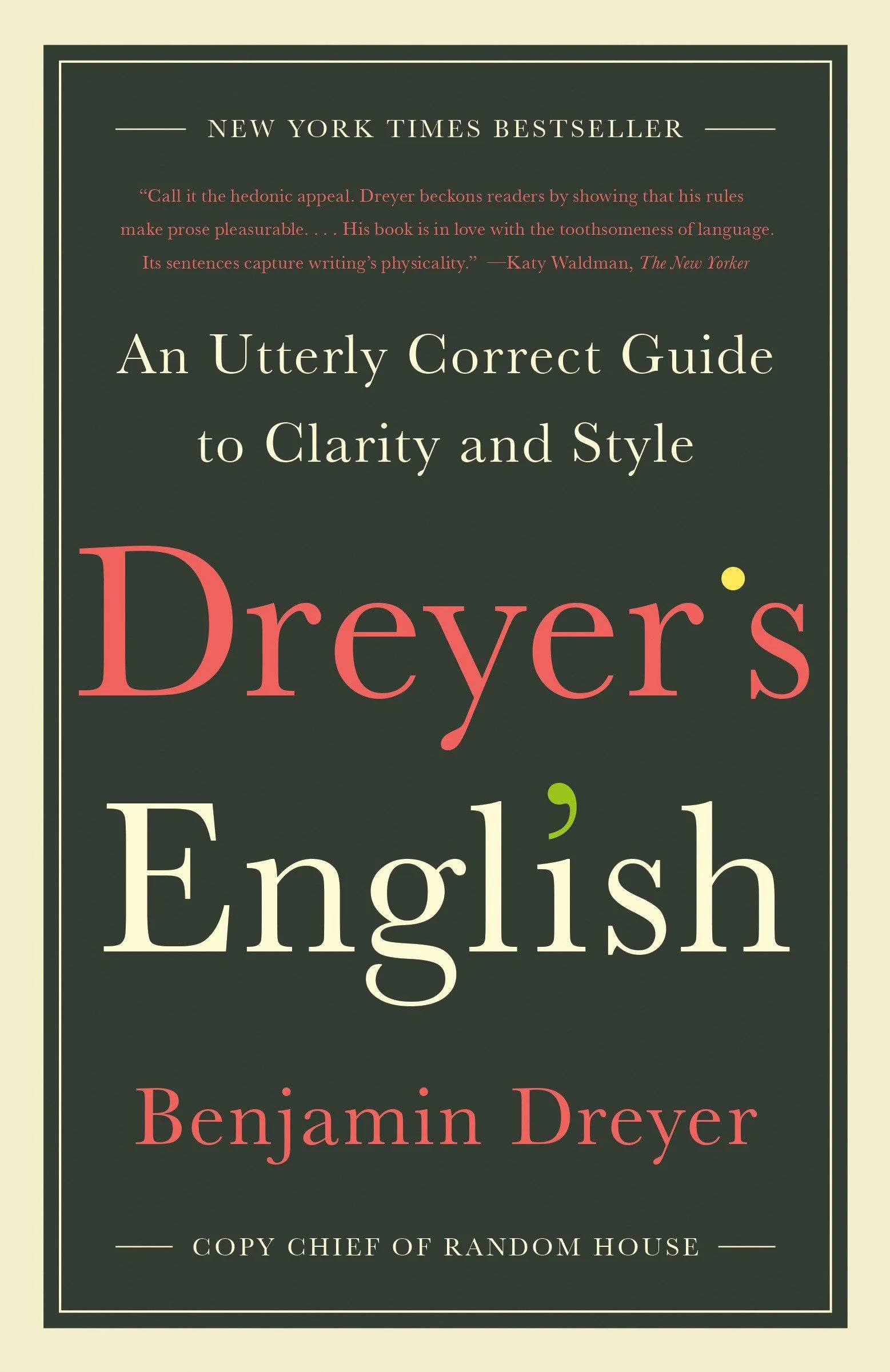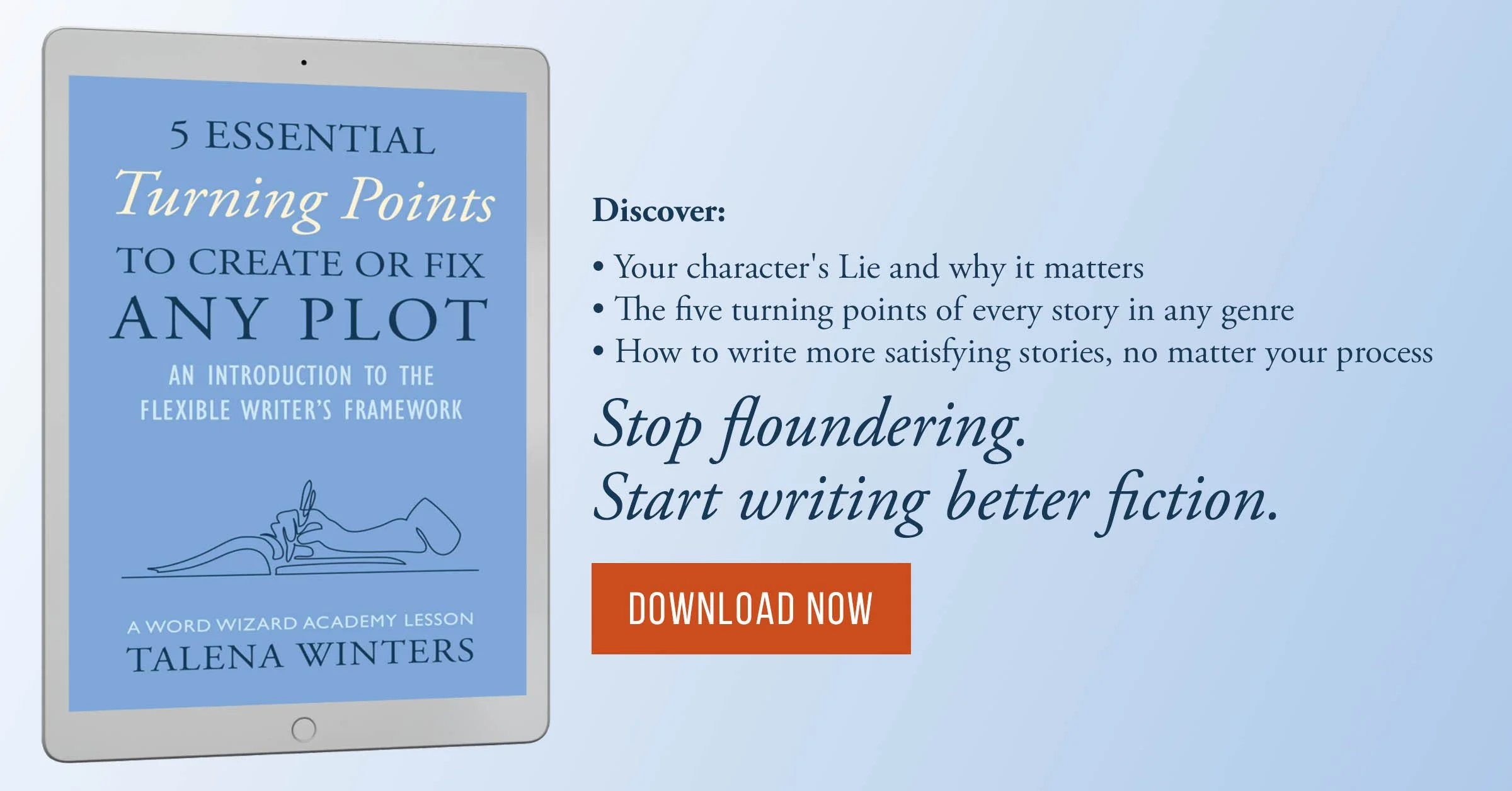Make It Count: Weed Out Crutch Words for Stronger Fiction Writing
No matter how experienced you are as a writer, it is likely you regularly employ words you don’t need. These words, known as crutch words, are commonplace in spoken language—but in our writing, they can serve to slow pacing, dilute meaning, and weaken impact.
By working to identify and eliminate unnecessary words from your prose, you’ll strengthen your writing for greater reader engagement. And you’ll also know when you want to employ them judiciously to remain true to your own voice.
Ready for some tips to weed crutch words from your own writing?
Onward.
What is a crutch word?
Lists of crutch words have been posted all over the Internet, and I’ve done a fair amount of googling for these lists myself. (There are some good ones.) But no list is exhaustive.
Why?
Because, while we can become aware of commonly used crutch words, new ones always creep in. With every manuscript I’ve written or edited, there is usually a new crutch word or phrase that must be tweaked.
Essentially, crutch words are filler words that, if they were removed, wouldn’t affect the meaning of a sentence at all—and might actually improve it.
(In fact, actually is a common crutch word, and one that frequently creeps into my own prose.)
Even words that wouldn’t normally be considered “crutch words” can become so if they are repeated enough. (I’m looking at you, right now and at the moment.)
We often don’t become aware of our crutch words ourselves, but sometimes we do. You need to be able to read through your work with an editor’s brain and notice repetitions and weak sentences. Having an editor or friend read your work with fresh eyes is a good way to uncover the new-and-improved crutch words in your latest manuscript. (My editors have pointed out words as innocuous as “own” and “into”.)
Here are a few categories to start training that editor’s brain so you know what to look for.
Prepositions
up
out
back
Most prepositions are completely extraneous. I once went through one of my manuscripts and eliminated unnecessary instances of “back” and managed to cut hundreds of words.
If you look up these words in the dictionary, the definitions will take up so much real estate they may span columns. When a word becomes that diluted in language, it’s on its way to becoming meaningless.
Compare:
He stood up and took it from her.
He stood and took it from her.
She reached out for the envelope.
She reached for the envelope.
They made it back home safely.
They made it home safely.
While not every preposition is filler, ninety-eight percent of the time, these three prepositions could be cut without altering the meaning of your sentence whatsoever.
Emphasis Adverbs
Really
Actually
Very
Just
Surely
Pretty (as in very)
Any word that’s overused eventually loses its meaning. While we commonly use the above words while speaking, in written prose, they tend to dilute, rather than increase, impact.
Compare these sentences:
There was really very little difference between the two.
There was little difference between the two.
While we might say the first sentence aloud, the second sentence is not only more succinct, but easier to read because of the lack of consecutive two-syllable words ending in y.
She just wanted to feel like she belonged.
She wanted to feel like she belonged.
Is the just necessary to convey meaning here? No. Nor is it necessary for author voice, unless you are intentionally trying to create a voice that’s a bit long-winded and meandering.
He actually didn’t even care.
He didn’t even care.
He didn’t care.
Despite career Random House copy editor Benjamin Dreyer’s emphatic admonition that he doesn’t think there is ever a good use case for actually,* I find it helpful to include for some character voices on occasion. However, I use it far less often than I used to. Most of the time, you don’t need it and would be better off without it. And, as shown above, even even may be extraneous and could be cut for greater impact, depending on your context.
There are plenty more of these “throat-clearers,” as Mr. Dreyer calls them, where these came from. These are the most common culprits, however. Keep an eye out and pull them out by the roots whenever possible.
Other Adverbs & Weak Verbs
whispers softly
shouts loudly
walks quickly
comes slowly
Stephen King famously wrote that he believes “the road to hell is paved with adverbs.” Since I have already covered this topic extensively in another post, including when an adverb might help instead of hurt, I’ll keep it simple here:
Adverbs themselves aren’t the problem. Redundant or unnecessary adverbs are the problem.
When you see an adverb in your writing, it is probably propping up a weak, non-descriptive verb, such as walk, come, get, do, etc. Or it might be saying something that’s already implied by the verb.
Anytime you have a verb-adverb pair, ask yourself:
Could this be made stronger by replacing these two words with a single stronger descriptive verb?
Is the detail included in the adverb already indicated by the verb or surrounding context?
For instance, you don’t need to say someone whispered softly—softness is implied by the verb whispered. However, if someone whispered loudly, you may need the adverb, because we don’t think of whispers as being loud (though they can be). Another way to say this would be to say they stage-whispered, which would give an even more dramatic and specific idea for the reader.
And instead of saying someone moved quickly, there are all kinds of descriptive verbs someone could use—ran, dashed, scrambled, etc. And you don’t need to say someone shouted loudly—the shouted will suffice on its own. If there’s an exclamation mark in the sentence, that alone tells us the speaker is shouting. (Please use exclamation marks sparingly.)
This is where the thesaurus is your friend. The more descriptive your verbs are, the fewer adverbs you will need to use, and the more immersive your reader experience will be.
Special Mention: That
That can be very correctly and properly placed in a sentence, but that sentence may use that in a completely logical manner two or three times… and that gets old fast, trust me. :-)
She didn’t know that the cafeteria now served that dish on Fridays instead of Thursdays.
She didn’t know the cafeteria now served that dish on Fridays instead of Thursdays.
For tighter writing, as a general rule, anywhere you can eliminate the word that from a sentence without altering or confusing the meaning, do it. Your editor will let you know if you’ve gone too far and re-insert any thats needed for clarification purposes.
Conclusion
As shown in these examples, cutting crutch words will usually make your meaning clearer while using fewer words, allowing your writing to be more engaging, have more impact, and be paced better. However, for specific character voices, you could intentionally choose to use “filler words” in their dialogue to reveal and deepen character. Just keep it consistent throughout.
As your personal crutch words are pointed out to you, start a list. Before sending your work to an editor, do a search for your known crutch words and eliminate as many as possible.
For a more complete lesson on how to reduce filler and crutch words in your writing, I recommend reading Dreyer’s English: An Utterly Correct Guide to Clarity and Style by Benjamin Dreyer. I’ve never laughed so hard while reading a book about grammar. Nor learned quite so much.
(Note that this is an affiliate link, which means if you click through and make a purchase, I’ll get a few cents at no extra cost to you.)
If you want a partner to help you spot the crutch words unique to you, please contact me through my Editorial Services page. I would love to help you unleash your inner word wizard by pointing out crutch words and a whole lot more.
Happy writing!
*Dreyer’s English: An Utterly Correct Guide to Clarity and Style, Benjamin Dreyer (Random House, 2019)
Talena Winters is a freelance developmental editor, independent author, magazine writer, and tea and silver lining addict. She specializes in helping struggling self-published fiction and memoir authors unlock their inner writing wizards and unleash story magic. See her editing services here.
New Mailing List: Word Wizard Academy
I have created a new mailing list for authors called Word Wizard Academy, which will include writing lessons and posts both from this blog and some that are exclusive to the list. You get the free eBook 5 Essential Turning Points to Create or Fix Any Plot when you join. To sign up, go here.
Cover for an eBook of 5 Essential Turning Points to Create or Fix Any Plot: An Introduction to the Flexible Writer's Framework (A Word Wizard Academy Lesson) by Talena Winters. Text: Discover • Your character's Lie and why it matters; • The five turning points of every story in any genre; • How to write more satisfying stories, no matter your process. Stop floundering. Start writing better fiction. Download now!



